Tag Archives: context
10 Nov Seeking a Universal Theory of Knowledge
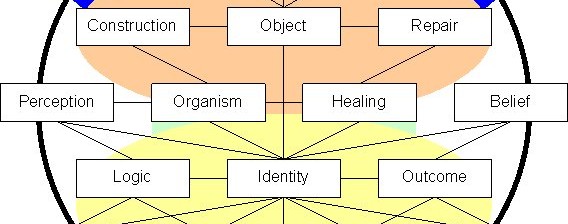
As a fundamental premise for this post, this blog as a whole, and my life’s work, I propose that language and “real world knowledge” are inextricably connected, and neither functions well without the other. This is why, in my opinion, natural language processing (NLP) initiatives focusing exclusively, or even primarily on language structure have significant […]
19 Oct Think Before You Speak?
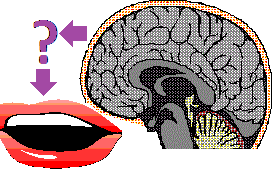
How closely is your brain connected to your mouth? Please don’t answer that. I want to blog about it for awhile so hold the thought. There is a bunch of electrical activity in the brain around organizing concepts into context, and a bunch more around putting your thoughts into words. This organizing and putting may […]
18 Sep Context is King Indeed
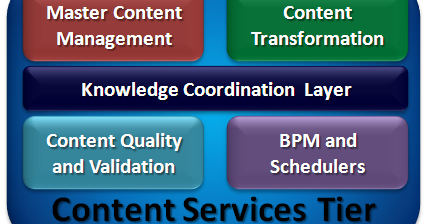
There are many important innovations adding context to business processes and data to make information access, collaboration and analysis more effective. I just read another great perspective on context in collaboration showing how taxonomies add value to teams of knowledge workers. Adding context is especially needed in moving toward the knowledge enterprise. I contend that […]
07 Sep Quest for the Knowledge Enterprise
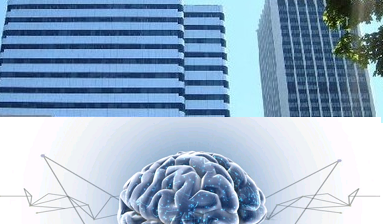
Do you need a Private Eye? As an Intelligence Professional, my mission was to seek out information that others were trying to conceal. Do you ever feel like that is too often your task when trying to find the answers to life’s persistent questions, or even something you need to buy? In an enterprise, those answers […]
31 Aug Building a Cathedral of Knowledge

Good fiction, especially good historical fiction, gets my brain spinning. Ken Follett‘s The Pillars of the Earth and World Without End describe the technology, born in the “Dark Ages” in which mortal men were able, with limited technologies, to build edifices that could stand throughout the ages. At the same time as Mr. Follett’s mythical cathedral […]
29 Aug Layers of Brain Complexity
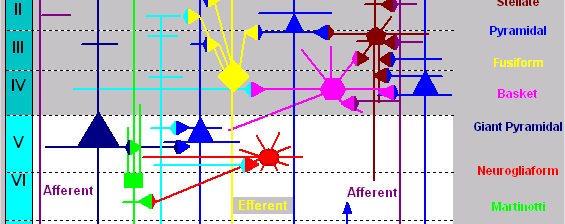
Hierarchy: A Structural Aspect of Thought The complexity of the cerebrum is necessitated by its function as the center of cognition. Before looking at cerebral structure, consider some of the functions of thought. Thinking involves accessing memory to find what perceived data is stored, what other data in memory it is associated with, and what is the […]
27 Aug Brain Correlation Processes
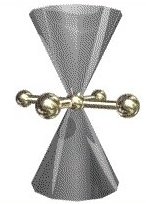
Many computer systems focus on a single capability, one task or just one dimension of a complex process. Sentient brain activity is an example of a complex process with many dimensions. Optical character recognition, such as identifying a capital “Q” on a piece of paper, is an example of a problem with three dimensions: Length, […]
23 Aug Specialized Instruments – Brain Areas
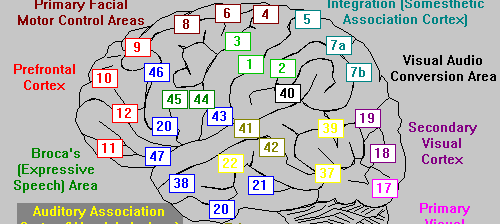
Finding Functions on a Map Much of what we know about the functions of areas of the brain was discovered by Korbinian Brodmann in the early 1900s. He mapped the brain by sticking in many electrodes, eliciting cognitive responses such as making a sound or showing an image to trigger perception, and monitoring electrical activity. Now, […]
21 Aug How Do You Think?
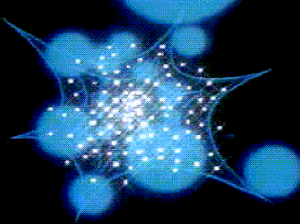
Weighing the Options As part of my quest for the truly intelligent system, I have invested much in investigating and attempting to describe how people think. I am particularly concerned with how people integrate multiple ideas or constraints into their thinking and decision-making processes. More ideas help make better decisions: consider my posts on exformation and […]





